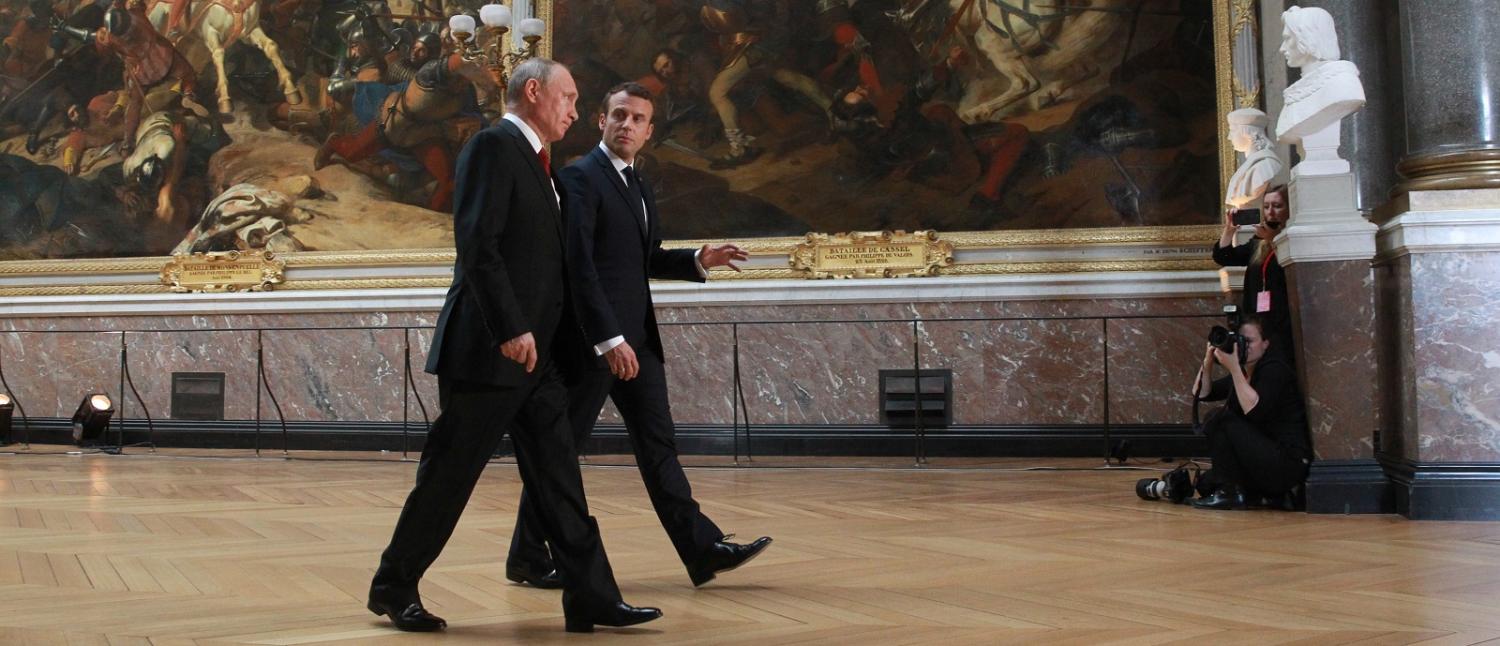Now the French election cycle is complete, what’s next for France’s foreign and security policy?
Macron’s victory on 12 May was decisive (he received 66% of the votes), but his real triumph has been the parliamentary elections. Optimists in his camp would never have anticipated that he would obtain the biggest election victory since the birth of the Fifth Republic in 1958: his République En Marche movement now controls two-thirds of the National Assembly. Although the percentage in votes was less impressive, the result gives him near-complete authority to fulfil his campaign promises.
Until 12 May, international diplomacy was largely terra incognita for Macron. He has not lived outside France for long periods of time, or given a lot of attention to thinking about international affairs. Macron expressed classical views, claiming that France abandoned its traditional place in the world with the election of Sarkozy in 2007, and that it should go back to what he called 'gaullo-mitterrandisme': more distance with Washington; more sympathy towards Russia; a willingness to talk to all parties in various crises.
But Macron, a fast learner, has arrived with a bang on the international scene, notably by showing that he would be impressed neither by the United States nor by Russia.
A few days after the inauguration, he met with Trump – famously shaking his hand harder than the US president is used to. The two agreed on the need to prioritise counter-terrorism, as well as the need for NATO to be more cost-effective and to play a role in the fight against the Islamic State. During the campaign, Macron had repeatedly emphasised the importance of US-French military ties. Nevertheless, the bilateral relationship is already troubled by the US stance on the Paris climate agreement – on which Macron now claims leadership – and might be further marred by future disagreements about how to deal with Iran.
Macron had been the target of a nasty campaign on Russian official media, and cyberattacks attributed to Moscow and so, even though he hosted Putin in Versailles to attempt a 'reset' of bilateral relations, during the joint media conference he accused Russian media of doing the dirty work for the Kremlin. Still, Macron is widely expected to maintain the Hollande policy: an improvement of France-Russia relations is possible if Moscow fully implements the Minsk-II agreements.
The appointment of former defence minister Jean-Yves Le Drian as the head of French diplomacy, with a portfolio including European affairs, is also likely to veer Macron towards some form of continuity. Le Drian will also bring important expertise in strategic affairs and the Middle East. The appointment of Sylvie Goulard, formerly a Member of the European Parliament, as the 'armed forces minister', will comfort the pro-European bias of the administration.
Macron's presidential campaign included several international visits to the Middle East and North Africa region. This reflected French strategic priorities and geographical realities, but also the high number of French nationals and dual nationals in these countries and in France. There is no doubt that Macron will carry on with the commitment of French forces against the Islamic State – he has adopted the Hollande administration’s stated goal of 'eradicating' jihadi terrorism.'
But the candidate hinted at his lack of appetite for military adventurism in the region. He views 'stability' as a paradigm to be nurtured, and regime change as a policy that can produce more terrorism. For him, military interventions should be undertaken only with a clear exit strategy and diplomatic roadmap. 'I stand on side of the realists as far as defence and foreign policy is concerned', he also said.
The Macron team intends to launch political initiatives for the stabilisation of Libya and Syria. On the latter, Macron seems keen to adopt a slightly softer – or more pragmatic – approach than his predecessor, and does not exclude dialogue with the regime. There is an inclination in the Macron team to slightly rebalance French relations with Middle East countries: the new administration wants to review the bilateral fiscal convention that exists between France and Qatar, which gives very favourable conditions to Doha.
The appointment of Philippe Etienne as Macron’s diplomatic advisor – a seasoned diplomat with a strong European background – confirmed that Europe would be the new president’s first foreign policy priority. Berlin’s apparent openness to review EU treaties to strengthen the Eurozone was an early positive sign. On Brexit, Macron will walk in the footsteps of his predecessor by taking a hard line; but he is no less keen on maintaining and even deepening UK-French military cooperation. The new president wants France to continue to be an active player in NATO, but he also supports a strengthening of European defence capabilities.
Macron was already familiar with defence issues, and his inauguration day (14 May) was full of deliberate symbols of his awareness of his responsibilities as head of the armed forces. His second visit abroad as president (after Germany) was to the French contingent in Mali. An internal strategic review will be conducted quickly so that the defence plan for the years 2019-2025 can be presented to Parliament in 2018. Macron wants to reach the 2% of GDP target but claims that it would be unrealistic to do so before 2025. Eager to stabilise the number of active troops and reinforce the reserves, the new president has also created a permanent counter-terrorism intelligence coordination task force under presidential supervision.
The shock created by Macron’s election is on a par with that of Barack Obama in 2008. The expectations are as high – which means he is bound to disappoint. But many uncertainties remain. (His apparent lack of knowledge of the Asia-Pacific region, for instance – on which there was not much in his foreign policy platform – is striking.) What would be surprising with Macron is if he stopped surprising.

